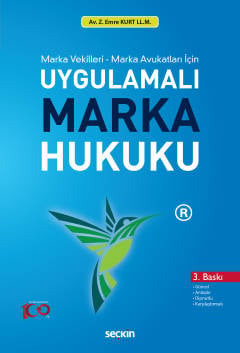Battling Counterfeiting in Turkey: Protecting Consumers and Intellectual Property
Introduction
Counterfeiting is a global menace that undermines economies, threatens consumer safety, and erodes trust in brands. Turkey, with its strategic location bridging Europe and Asia, is no stranger to the challenges posed by counterfeiting. In this article, we’ll explore the issue of counterfeiting in Turkey, its impact on the economy, and the efforts being made to combat this illicit trade.
*The Scope of Counterfeiting in Turkey*
Counterfeiting in Turkey spans a wide range of products, including counterfeit electronics, fashion items, pharmaceuticals, automotive parts, and even food products. The proliferation of counterfeit goods in the market poses significant risks to consumers and brand owners alike.
*Economic Impact*
Counterfeiting is not just a problem for brand owners; it has serious economic consequences for Turkey as well. Some of the key impacts include:
1. *Loss of Revenue:* Counterfeit goods rob legitimate businesses of revenue, hurting their ability to invest in innovation and growth.
2. *Tax Evasion:* The sale of counterfeit products often occurs in the informal economy, leading to tax evasion and a reduction in government revenue.
3. *Consumer Safety:* Counterfeit goods may be of inferior quality and pose health and safety risks to consumers. This can lead to medical emergencies and undermine public trust.
4. *Brand Damage:* Counterfeit products can tarnish the reputation of genuine brands, causing long-term damage to their image and consumer trust.
Efforts to Combat Counterfeiting in Turkey*
The Turkish government and various stakeholders have been actively combating counterfeiting through a combination of legislative measures, enforcement actions, and public awareness campaigns:
1. *Legislation:* Turkey has enacted strict intellectual property laws and regulations to provide legal frameworks for the protection of trademarks and copyrights. These laws empower authorities to take action against counterfeiters.
2. *Customs and Border Control:* Customs authorities in Turkey are vigilant in monitoring imports and exports, cooperating with brand owners to identify and seize counterfeit goods at border points.
3. *Law Enforcement:* Turkish law enforcement agencies collaborate with brand owners and conduct raids to uncover and shut down counterfeit production and distribution networks.
4. *Public Awareness:* Public awareness campaigns are conducted to educate consumers about the risks associated with counterfeit products and how to distinguish genuine goods from counterfeit ones.
5. *IP Courts:* Turkey has specialized intellectual property courts that handle trademark and copyright disputes, providing a forum for brand owners to seek legal remedies against counterfeiters.
Challenges Ahead*
Despite these efforts, counterfeiting remains a persistent challenge in Turkey, and several factors contribute to its resilience:
1. *Sophisticated Networks:* Counterfeiters often operate in complex, organized networks that can be challenging for authorities to dismantle.
2. *E-commerce:* The rise of online marketplaces has made it easier for counterfeiters to sell their products to a global audience.
3. *Consumer Demand:* Bargain hunting and the allure of discounted prices sometimes lead consumers to knowingly or unknowingly purchase counterfeit goods.
*Conclusion*
Counterfeiting poses significant risks to consumers, businesses, and the Turkish economy. While Turkey has taken substantial steps to combat this illicit trade, continued efforts and cooperation between government agencies, brand owners, and the public are essential. Raising awareness, strengthening enforcement, and adapting to new challenges posed by the digital age will be key in the ongoing battle against counterfeiting in Turkey, ultimately ensuring consumer safety and preserving the integrity of intellectual property rights.
https://www.mondaq.com/turkey/trademark/796404/anti-counterfeiting-raids-under-turkish-law







